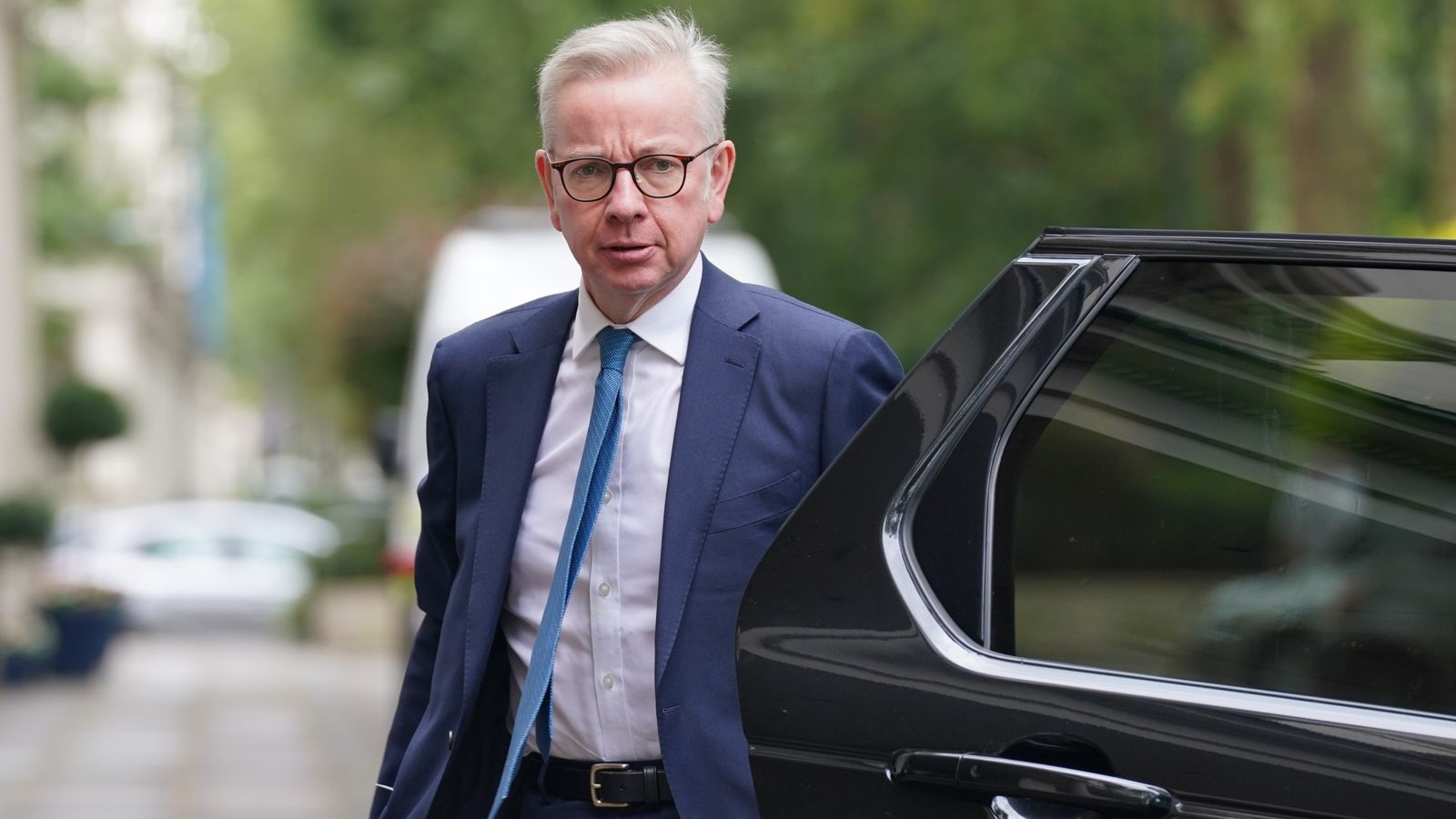COVID-19 inquiry: Brexit preparation ‘helped’ COVID response, Michael Gove argues

Planning for a no-deal Brexit was “some of the best preparation” possible for the COVID pandemic, Michael Gove has argued.
The veteran Tory, who was Cabinet Office minister and chancellor of the Duchy of Lancaster when the pandemic began in 2020, said the work on EU withdrawal made the UK “more match fit” because it “enhanced” civil servants’ crisis-management skills.
Giving evidence to the COVID-19 inquiry, he denied that moving staff over to Brexit work harmed pandemic planning.
Politics latest: PM accused of treating migrants as ‘cash cows’
“The nature, the pace and the intensity of the work undoubtedly placed pressure on individuals and the system, but it also ensured a greater degree of match fitness for what none of us anticipated but what was to come the year after,” he said.
“I would argue that the skills acquired, honed and refined during EU exit preparation helped us not only to have an organisational system that was better in dealing with the crisis, but having a cadre of people who’d been through an intense process that enhanced their ability to respond.”
Mr Gove added: “The preparation for EU exit in and of itself was some of the best preparation that could have been undergone for any future crisis.”
The levelling-up secretary is the latest high-profile politician to give evidence to the inquiry, which is currently examining the country’s preparedness for a pandemic.
His assertion that Brexit planning helped the UK’s readiness contradicts evidence given by other witnesses, including former Scottish first minister Nicola Sturgeon.
Advertisement
Under Boris Johnson’s premiership, Mr Gove was in charge of mitigating the risks of a no-deal Brexit across government departments.
Explaining that his team had to work at an “accelerated” tempo due to the EU exit deadline, he said: “I do believe that it was helpful for all of government to be operating at that pace, because we made government more match fit overall for the terrible events that this inquiry has been set up to look at.”
Mr Gove also defended the function of “amateur” politicians in resilience planning, because they ask the “daft, laddie question”.
Click to subscribe to the Sky News Daily wherever you get your podcasts
“Sometimes it is only when someone asks that question that we find out that the emperor has no clothes or the pandemic preparedness plan has a huge hole in the middle,” he said.
The inquiry continues.